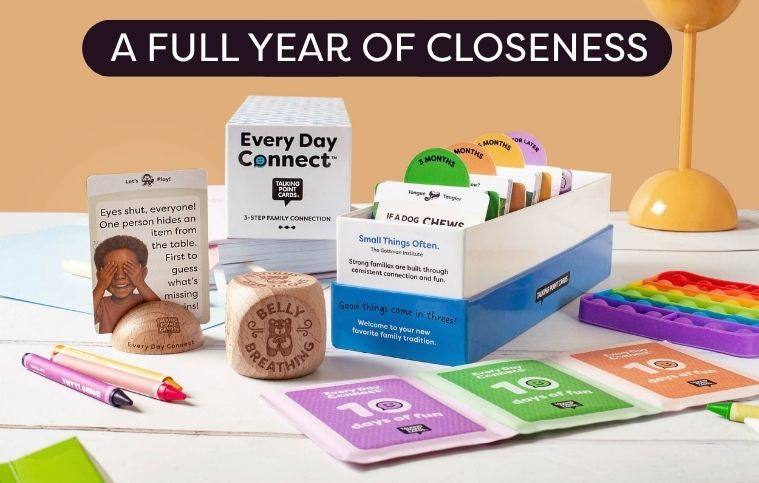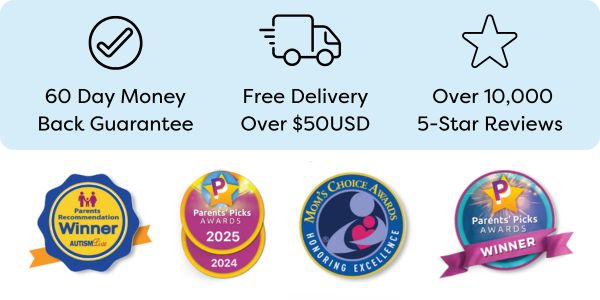SHOP
About
Being Curious
How to Find and Seize Opportunities for Follow-Up Questions During Conversations

Have you ever been in a conversation that just... died? You know the feeling - awkward silences, stilted small talk, checking your phone every 30 seconds hoping a meteor will strike and put you out of your misery. We've all been there, and it sucks.
But what if I told you there was a simple trick to keep almost any conversation flowing naturally and make the other person think you're a charismatic genius? Well, there is. And it all comes down to one thing: asking good follow-up questions.
Why Follow-Up Questions are Conversation Magic
Before we dive into the how, let's talk about the why. Asking thoughtful follow-up questions is like conversation steroids. It makes you instantly more likable, interesting, and memorable. How? A few reasons:
-
It shows you're actually listening and engaged.
-
It demonstrates genuine curiosity about the other person.
-
It keeps the conversation flowing naturally.
-
It allows you to dig deeper.
Plus, and this is key - it takes the pressure off you to constantly come up with new topics or entertaining anecdotes. The person you're talking to becomes an endless source of conversational fuel.
You just have to know how to tap into it.

The Art of the Follow-Up: A Step-by-Step Guide
So how do you actually do this in practice? Let's break it down:
Step 1: Listen. No, Really Listen.
This might seem obvious, but it's shockingly rare. Most people in conversations are just waiting for a break to say whatever they had pre-planned in their head. Don't be that person.
Actually focus on what the other person is saying. Try to understand not just their words, but the emotions and motivations behind them. What excites them? What frustrates them? What are they curious about?

"Most people do not listen with the intent to understand; they listen with the intent to reply."
- Stephen Covey
Step 2: Identify "Nuggets"
As you're listening, keep an ear out for what I call "nuggets" - interesting tidbits or hints at deeper stories that are worth exploring further. These could be:
-
Unusual words or phrases they use
-
Emotional reactions (positive or negative)
-
Mentions of people, places, or events that seem significant
-
Opinions or beliefs they express
-
Anything that makes you go "huh, that's interesting"
Think of yourself as a conversational gold miner, always on the lookout for those shiny nuggets of potential.
Step 3: Choose Your Follow-Up Wisely
Not all follow-ups are created equal. The best ones are:
-
Open-ended (can't be answered with just yes/no)
-
Specific to what they just said (shows you were paying attention)
-
Aimed at uncovering emotions, motivations, or deeper stories

Some great follow-up starters:
-
"What was that experience like for you?"
-
"How did you feel when that happened?"
-
"What led you to that decision?"
-
"Can you tell me more about...?"
-
"What do you mean by...?"
Avoid:
-
Yes/no questions (conversation killers)
-
Changing the subject entirely
-
Making it about you ("Oh that reminds me of when I...")
Step 4: Listen Again and Repeat
Once you've asked your follow-up, go back to step 1. Listen carefully to their response, identify new nuggets, and keep the cycle going.

Advanced Techniques for Follow-Up Ninjas
Once you've got the basics down, here are some pro-level moves to take your follow-up game to the next level:
The Callback
Reference something they said earlier in the conversation, showing you were paying attention and making connections.
"You mentioned earlier that you love Thai food. How does that tie into your interest in traveling to Southeast Asia?"
The Hypothetical
Pose a hypothetical scenario related to what they're talking about to explore their thoughts more deeply.
"If you could go back in time and give yourself advice before starting that project, what would you say?"
The Devil's Advocate
Respectfully challenge an opinion they express to spark deeper discussion. (Use this one carefully!)
"That's an interesting perspective on remote work. Have you considered the potential downsides, like...?"
The Emotion Probe
Directly ask about the emotions behind their experiences or decisions.
"Starting your own business must have been scary. What fears did you have to overcome?"
Common Pitfalls to Avoid
Even with the best intentions, there are some common mistakes people make when trying to ask follow-up questions:
-
Machine-gun questioning
-
Faking interest
-
Interrupting
-
Getting too personal too fast
-
Forgetting to share

The Benefits Beyond Just Better Conversations
Mastering the art of the follow-up question isn't just about having more enjoyable chats (although that's awesome). It can have profound effects on your life:
-
Better relationships: People love feeling heard and understood. You'll build stronger connections.
-
Increased empathy: You'll gain deeper insights into others' perspectives and experiences.
-
Enhanced learning: Every conversation becomes an opportunity to discover something new.
-
Improved problem-solving: You'll uncover root causes and nuances you might have missed.
-
Career advancement: Great communicators tend to excel in almost any field.

Putting It Into Practice: Your Follow-Up Challenge
Reading about communication skills is one thing, but the real growth happens when you put it into practice. So here's your challenge:
Reading about communication skills is one thing, but the real growth happens when you put it into practice. So here's your challenge:
In your next three conversations (whether with friends, family, coworkers, or even strangers), make a conscious effort to ask at least three thoughtful follow-up questions. Pay attention to:
-
How does it change the flow of the conversation?
-
What new information do you learn?
-
How does the other person respond?
Afterwards, reflect on what worked well and what you could improve. Communication, like any skill, gets better with deliberate practice.
Wrapping Up: The Power of Curiosity
At its core, asking great follow-up questions is about cultivating genuine curiosity about the people around you. It's about viewing every conversation as an opportunity to learn something fascinating, to glimpse the world through someone else's eyes.

When you approach conversations with this mindset, something magical happens. Not only do your communication skills improve, but you start to see the incredible richness and complexity in every person you meet. Suddenly, that stranger on the bus or your quiet coworker becomes a treasure trove of unique experiences and insights.
So go forth and get curious! Ask questions, dig deeper, and watch as your conversations (and your life) become infinitely more interesting.
Now if you'll excuse me, I have a burning follow-up question for my cat about why he insists on knocking every single object off my desk...
LIKED THIS ARTICLE?
SIGN UP FOR MORE!






